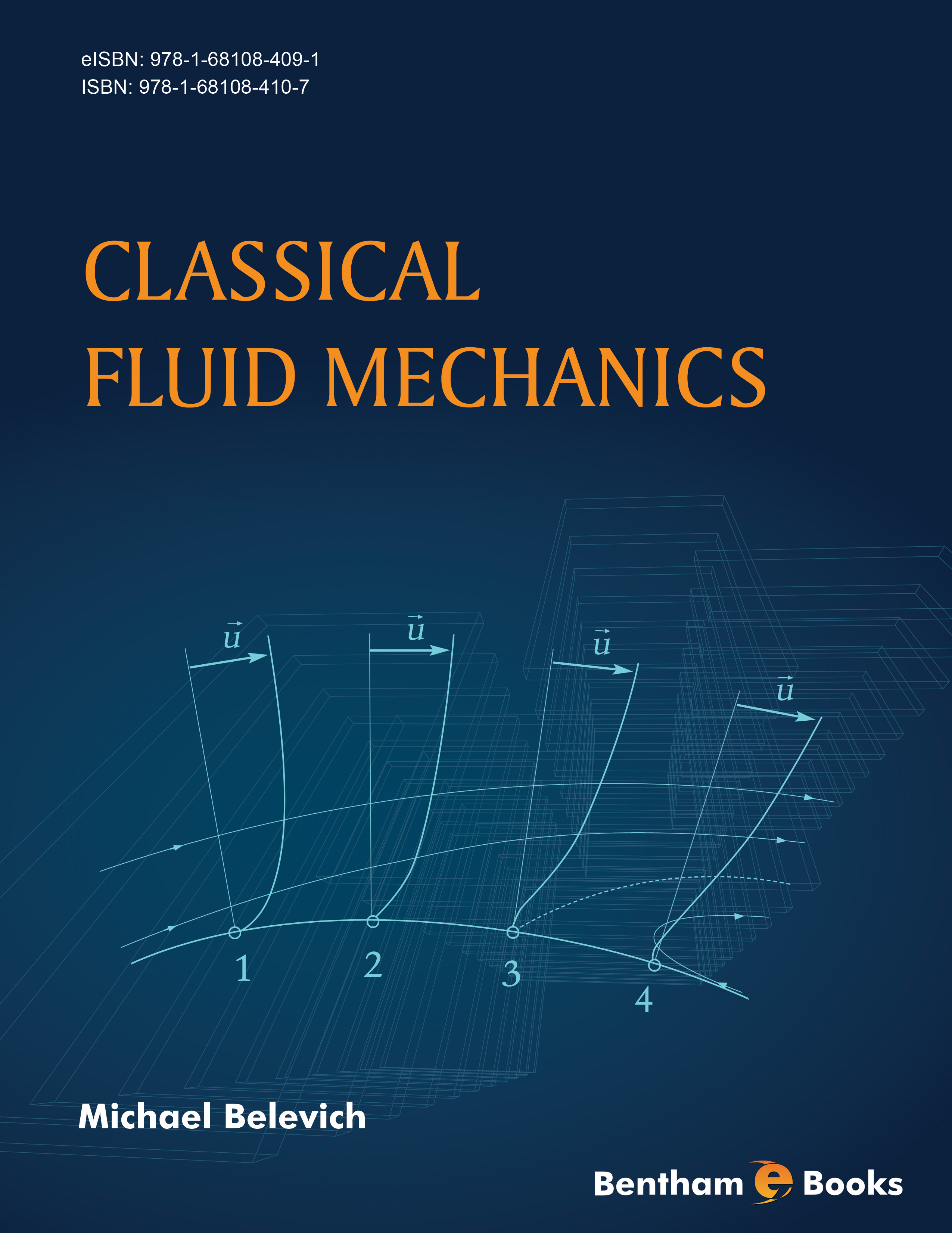Reviews
Review 1
“…I would sincerely recommend this book to experienced scientists who have a need to systematically think about what they learned in the world of fluid dynamics. For this type of reader, the book is much more than just a textbook because it delicately investigates a philosophical background behind classical concepts of fluid mechanics. It may provide a stimulating reading experience prompting challenging thinking about models and their relation to nature and causality.”
– Mikhail Verbitsky, Ph.D., Sc.D., Partner, Gen5 Group, LLC, USA
https://benthamebooksbulletin.wordpress.com/2018/06/06/book-review-classical-fluid-mechanics/
Review 2
The subjects covered in the book are relevant to mathematical models of fluid dynamics. The hypotheses which define objects of study, axioms, underlying the described models, and the consequences arising out of these hypotheses and axioms are rigorously and carefully examined, and their physical meaning is explained. Only in a few textbooks on fluid mechanics, are considered the meanings and concepts of "intuitively obvious" basic objects of study, and as a result they are misunderstood or even not formalized at all. The narrative of the book begins from the very basic mathematical definition of fluid body, description of its motion, mass conservation law, concept of force etc. The key point of theoretical fluid mechanics - continuity hypothesis is discussed in a very detailed manner. Special attention is paid to its physical meaning and the region of its applicability. Integral and differential conservation laws together with equation of state forming the closed system of equations for fluid model are presented rigorously.
The distinguishing feature of this book is the different applications and simplifications of the fluid model, presented in Part 2, which includes beside their description, the discussion of the problems posing for particular fluid models like perfect or viscous fluid, boundary layer model, approaches for turbulent flows description, free convection etc. As the author of the book emphasizes: "Any model is an attempt to give a simple description of a complex phenomenon," and one can expand this sentence: it is desirable to use the simplest model to adequately describe any particular problem, but not too much simple! What characteristics of fluid motion have to be described and what may be omitted, what problems may be adequately investigated by the presented models - such kind of analysis is widely presented in the book.
The explanation of the basic models of fluid mechanics theory and its applications are very clear and reader can easily “catch” it with a minimum of mathematical education. But in any case, the minimal necessary information about vector and tensor analysis is presented in the book.
The book also includes a carefully selected set of exercises that should help the reader to "check" the understanding of the material presented.
Finally speaking, the text book of M. Belevich outlines a consistent and rigorous approach to the fundamentals of fluid mechanics theory and will be useful for readers of all levels from students to professors weighed down by the diverse knowledge in the subject.
Prof. Igor Shugan,
Deputy Director, Research Professor,
International Wave Dynamics Research Center,
National Cheng Kung University, Taiwan,
Tainan Hydraulics Laboratory,
Tainan, Taiwan
&
Leading Researcher,
P.P Shirshov Institute of Oceanology, RAS,
Nahimovskii, Moscow, Russia
Review 3
Hydromechanics is rather a mature discipline. It has long been taught in various universities, and there are a fair number of textbooks outlining it. What are, then, distinguishing features of M. Belevich's book "Classical Fluid Mechanics" against such a background? Among them are the following.
Firstly, it is an emphasis on the basics. The book is addressed to people first encountering the construction of mathematical models of physical objects. Here, the fluid is chosen as such an object, and construction of a mathematical model is performed on its example.
Secondly, this is a systematic presentation of the material. Construction of the simplest model of a media (model of the perfect fluid), which is the subject of the entire first part of the book, is discussed in details. The fundamental hypotheses are described, and the laws of nature with corresponding postulates are formulated. Finally, the basic system of differential equations is derived. The second part of the book is devoted to considering of examples of usage of the constructed model. On the one hand, these are variants of simplification of the model in some specific cases, and on the other hand these are the model modifications in order to extend its range of applications (for example, to describe viscous or turbulent fluid).
And thirdly, along with the presentation of the classical material in the appendix to the book, one of the possible variants of generalization is also given. The existing standard theory describing the motion of a viscous fluid does not satisfy the causality principle, which in some applications is a serious drawback. The generalization given in the book makes it possible to avoid this problem.
The book contains a considerable number of tasks and exercises for the practical work of students. They are carefully chosen so that to illustrate the appropriate theoretical material. Many of them are equipped with answers, which will allow students to independently track stages of the solution and its nuances.
The book is compact, which is largely achieved via active use of tensors and non-coordinate form of writing down of mathematical expressions. Such an approach makes it possible to create an easily readable text without focusing on the exclusive use of the Cartesian coordinates and corresponding Cartesian bases.
Summarizing, it should be noted that the book will be useful to all of those who want to understand how, and why so, a mathematical model of a fluid is constructed. It is designed to lay the foundation, which will allow one to master other, much more special branches of fluid mechanics.
Professor Victor Frolkis
Senior Research Scientist
Voeikov Main Geophysical Observatory
St. Petersburg, Russia

